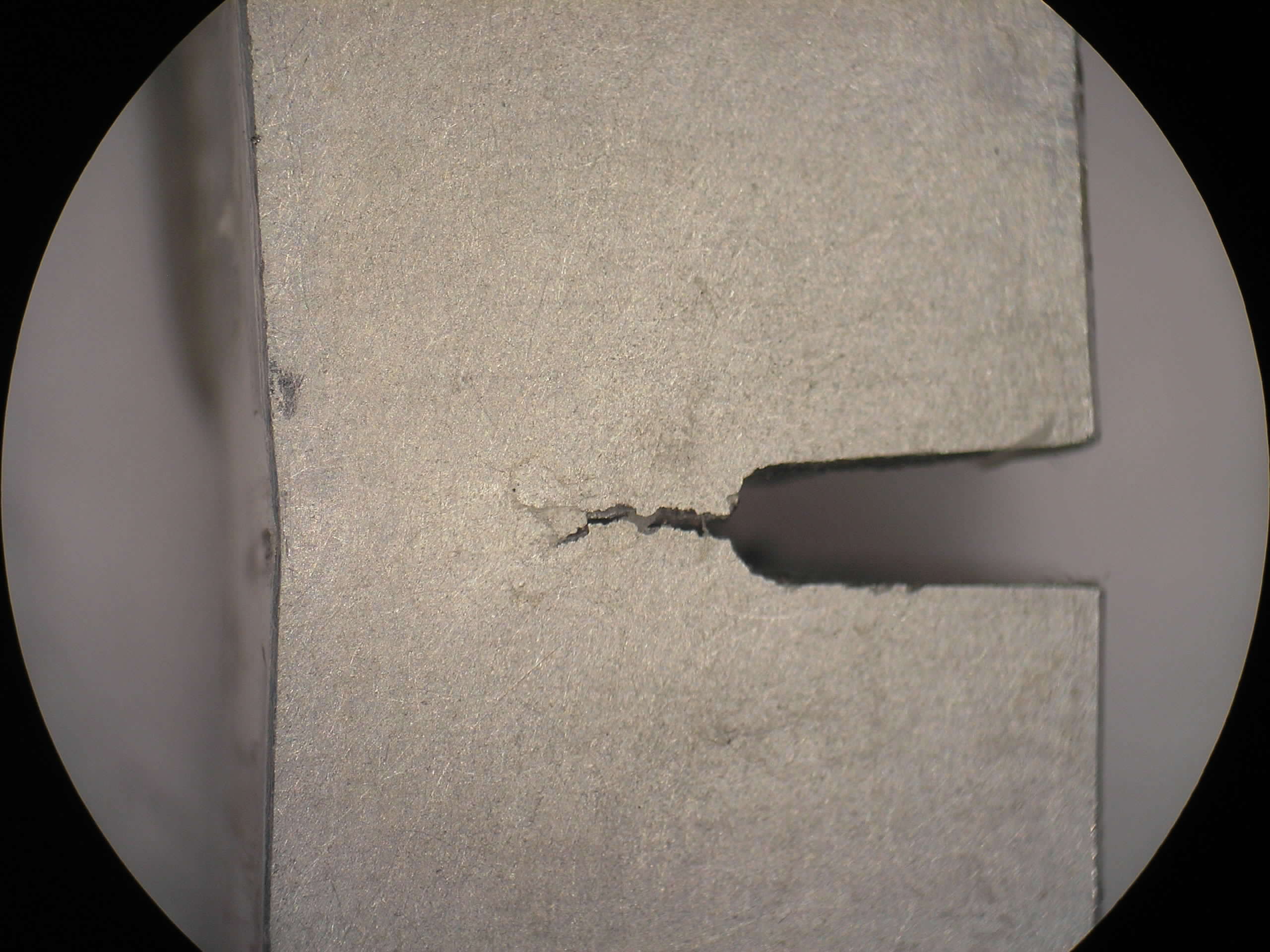ISO 25217 Adhesive Fracture Energy Testing
The ISO 25217 standard is a pivotal benchmark in the field of adhesion testing, specifically focusing on the determination of adhesive fracture energy. This service is essential for quality managers and R&D engineers who need to ensure the integrity and performance of bonded joints under various loading conditions. Adhesive fracture energy testing provides critical insights into the failure mechanisms of bonding layers, which are crucial for industries ranging from aerospace to automotive.
Adhesion is a fundamental property in composite materials and structural assemblies where two surfaces are joined by an adhesive. The failure mode of adhesives can significantly impact the overall performance and longevity of products. ISO 25217 testing helps identify the energy required to initiate fracture at the interface between the adherend and the adhesive, offering valuable data for material selection, product design, and quality control.
The test involves subjecting a specimen to controlled tensile loading until failure occurs. The standard specifies the dimensions of the specimens, the type of bonding configuration, and the method of applying load. The fracture energy is calculated from the area under the stress-strain curve up to the point where the adhesive layer fractures.
Our laboratory adheres strictly to ISO 25217 guidelines using advanced testing equipment such as universal testing machines (UTMs) equipped with appropriate fixtures and sensors. Specimens are prepared according to the standard’s specifications, ensuring consistency in test results. The testing process is fully documented, and detailed reports are provided for every test conducted.
The importance of ISO 25217 lies not only in its role as a regulatory requirement but also in its contribution to innovation within adhesion technology. By understanding the fracture energy characteristics, engineers can design more robust bonded structures that meet both performance and safety standards.
Industry standards like ISO 25217 play a crucial role in promoting consistency across different manufacturers and suppliers. This ensures that products undergo rigorous evaluation, leading to higher quality outcomes. Compliance with these standards enhances the reliability of adhesives used in critical applications such as structural repairs or manufacturing.
| Key Parameters | Description |
|---|---|
| Test Specimens | Typically rectangular or circular specimens with defined dimensions (ISO 25217 specifies the exact sizes). |
| Testing Equipment | UTMs capable of applying controlled tensile loads. |
| Loading Rate | A predefined rate specified in ISO 25217 to ensure consistent test conditions. |
| Data Collection | Sensors for measuring stress and strain during the testing process. |
| Fracture Energy Calculation | The area under the stress-strain curve up to fracture initiation point. |
In summary, ISO 25217 Adhesive Fracture Energy Testing is a cornerstone for assessing the performance of adhesives in various industries. It provides essential information about material properties and helps ensure product reliability. Our laboratory ensures accuracy and precision through adherence to international standards and state-of-the-art testing methodologies.
Applied Standards
The ISO 25217 standard is widely recognized as a comprehensive guide for determining the adhesive fracture energy of bonded joints in adhesives. This service aligns with several other internationally accepted standards that are relevant to material testing and quality assurance:
- ASTM D4560: This American Society for Testing and Materials (ASTM) standard covers the determination of interlaminar shear strength in composite materials, which can be related to adhesive performance.
- EN 13729: European Norm for the testing of adhesives used in construction and engineering applications.
- IEC 60482-1: International Electrotechnical Commission standard for the safety of electrical equipment, which may include requirements for insulation materials involving adhesives.
The alignment with these standards ensures that our testing procedures are not only precise but also compatible with global industry practices. This consistency is vital for companies operating in multiple markets or seeking to meet specific regulatory requirements.
Industry Applications
- Aerospace and Defense: Ensuring the reliability of bonded joints in aircraft structures and missile components.
- Automotive Manufacturing: Evaluating adhesives used in vehicle body panels, interiors, and structural reinforcements.
- Medical Devices: Assessing the integrity of bonding layers in surgical instruments or implant devices.
- Construction Industry: Quality control for construction adhesives used in masonry, concrete reinforcement, and waterproofing materials.
- Railroad and Transportation: Testing adhesives for track repairs and vehicle assembly.
- Electronics Manufacturing: Evaluating the robustness of bonding layers in circuit boards and connectors.
The wide applicability of ISO 25217 makes it a crucial tool across numerous sectors. By providing detailed insights into adhesive performance, this service helps manufacturers adhere to stringent quality standards and improve product durability.
Customer Impact and Satisfaction
- Informed Decision Making: Customers gain valuable data on material performance that informs their procurement decisions.
- Cost Efficiency: Early identification of potential failures through testing reduces the cost associated with rework or product recalls.
- Risk Mitigation: Understanding the fracture energy helps in designing safer products and processes.
- Regulatory Compliance: Ensures that all materials meet industry-specific regulatory requirements.
- Innovation Support: Insights from testing can drive continuous improvement in adhesive technology.
- Quality Assurance: Consistent adherence to ISO 25217 helps maintain high standards across production lines.
Our clients appreciate the detailed and actionable reports we provide, which help them stay ahead of industry trends. By leveraging our expertise in ISO 25217 Adhesive Fracture Energy Testing, businesses can enhance their competitive edge in a highly regulated environment.





